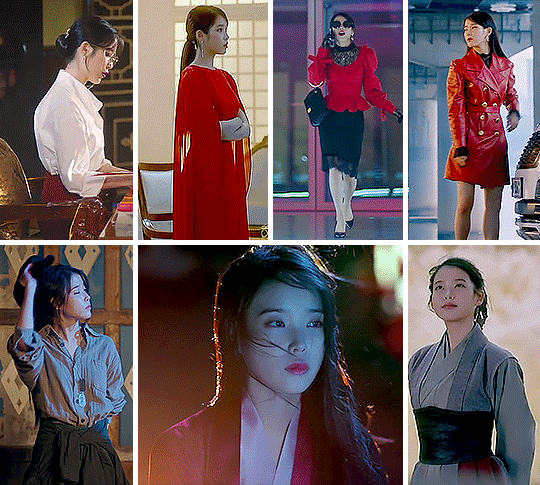Death is the only guarantee in life. Nobody knows what happens after death, but everyone has their own beliefs, and some of them contradict each other. Hotel Del Luna is a 2019 Korean drama that explores what might happen if there were a period of transition after life, a phase that prepares us for whatever is next.
This story begins in Korea's Goryeo era (918-1270). A young woman is fleeing from a group of royal guards when she comes across an old woman in a small stand in the middle of the desert. The old woman offers her a cup of wine, and the young woman accepts. Little does she know that the stand is actually the fabled Moon Inn, where spirits go after death. Nor does she know that upon drinking from the cup of wine, she must now take over ownership of the place. This inn will eventually become the Hotel Del Luna, a hotel that caters only to the spirits of the dead.
Fast forward to the present time and the Hotel Del Luna has become a huge, luxurious place. Though located in the middle of Seoul, a certain magic surrounds the hotel that makes it practically invisible and uninteresting to most of the living, and appealing to the spirits of the dead. The people who make up the staff at the hotel are almost all spirits as well, each with their own heartbreaking stories of why they cannot move on yet, including the young owner, Man Wol.
gif from eehyoou.tumblr.com
Man Wol ensures that the hotel guests have processed what they have lost and are ready to move on without regrets, so they can be reborn into their next lives with a clean slate. The impact that arriving at a resolution can have on a person's readiness to move forward with life is very powerful. Oftentimes, we can become stuck on a memory or an event, such as when we experience loss, or when we witness or survive violence. This can lead to perseveration, meaning we think about it over and over again without coming to a resolution.
Getting “stuck” can interfere in a significant way with truly living our lives. We give attention to the event that happened instead of taking care of ourselves, spending time with loved ones, doing something meaningful, or just carrying on our daily routine. This can look like no longer showering, having trouble getting out of bed, sleeping too much, declining invitations to spend time with loved ones, feeling sad most of the time, or feeling tired. It can also look like saying no to new opportunities. At its worst, this can lead to making us feel paralyzed, no longer participating in any of life’s activities.
gif from Halyu+
Getting “unstuck” can mean reaching acceptance of what happened. This doesn’t mean that we have to be happy about it, rather that it is not something we can change. This doesn’t mean that we “get over it”, but that we “go through it” to come out stronger. Another step in getting “unstuck” is realizing that we have some power over some aspects of our lives, and using that power to make the commitment to ourselves to go on, to engage in life.
The spiritual aspect of this story is that it explores the scenario that there is something after death, and that there may be a period of grief and acceptance as one transitions from living whatever is next.
One can say that what Man Wol does is a sort of grief processing. When we lose someone or something dear to us, this can be a huge shock to our entire sense of stability. There are various stages of grief, and these can include shock and denial, guilt, anger and bargaining, depression, the upward turn, reconstruction, and acceptance. In reality, the stages of grief do not happen in that order, nor do they happen only once. Rather, a person can go through each stage multiple times. Nor is it uncommon to “skip” a stage. The Stage of Grief model serves more as a piece of information, not as a rule.
The spirits we meet throughout the drama represent the stages of grief. They include, without giving too much away, a father who cannot accept that he has died and left his child an orphan (denial), a young woman whose trauma has led to such rage that she is at risk of becoming an evil spirit (anger), and even a dog who will not move on until someone finds his human (bargaining, or just a dog being a loving companion *cries*).
This wonderful story reminded me a little of the anime Death Parade, which I've covered many posts ago, however, the two are not related as far as I know. I loved the story, the wardrobe, and I love the soundtrack (which you can find on Spotify).
I leave you with this. Man Wol’s impeccable style:
*******
Resources on Grief:















Post Comment
Post a Comment